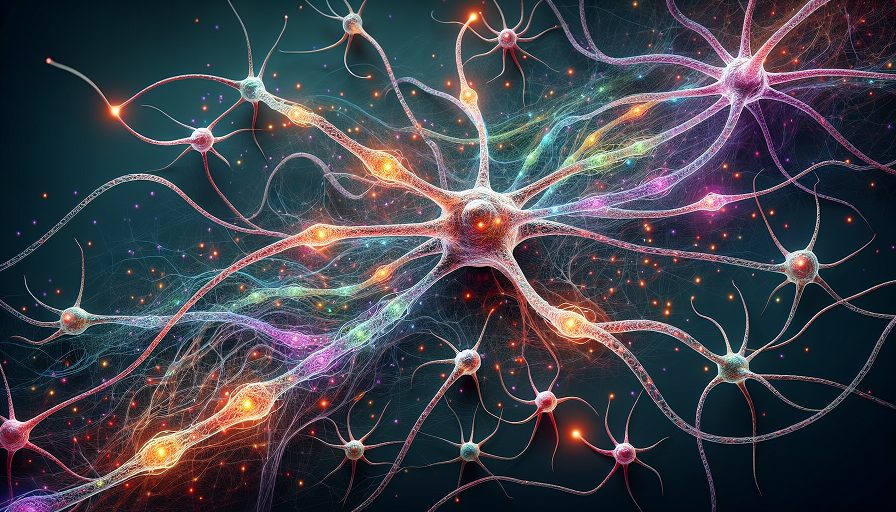
Short answer: Not directly in any robust, repeatable way. Eclipses don’t beam special forces into the brain. Any effects people notice – good or bad – are best explained by ordinary mechanisms: sudden changes in light and temperature, expectation and emotion (awe), schedule disruptions, and, in rare cases, unsafe viewing that injures the eyes. If anything, the biggest “brain effects” come from the experience and behavior around the event, not the alignment itself.
Contents
What Would Have to Be True for Alignments to Matter?
- Gravity: The gravitational pull of the Moon on your body is tiny and nearly uniform at human scale; the tidal forces across your head are far too small to perturb neural signaling. Claims that gravity during alignment changes cognition have no credible support.
- Unknown radiations: There is no special radiation emitted by an alignment. The Sun’s output doesn’t spike because the Moon passes in front of it.
What Actually Changes During an Eclipse
- Light intensity and spectrum: Daylight drops sharply for minutes to hours, with unusual spectral qualities. Because the circadian system is light-sensitive, a brief mid-day dimming may nudge alertness or mood for some – but effects are transient and small compared with a normal night–day cycle.
- Temperature and wind: Local cooling and breeze shifts can occur as sunlight fades. Some people feel more alert or sleepy with temperature swings, but again the effects are short-lived.
- Emotion and attention: Awe, anticipation, crowd behavior, and the novelty of the moment strongly color perception and memory. You’re more likely to remember what you learned or felt because the event is emotionally charged, not because your neural hardware was altered.
- Safety behavior: Looking at the Sun without proper filters can damage the retina (solar retinopathy), leading to central blur or scotomas that impair reading and attention. This is the most consequential brain-adjacent risk – via the eyes.
What the Evidence Suggests
Animal studies show behavior shifts (e.g., birds roosting, insects quieting) during eclipses – consistent with light/temperature cues. Small human studies and field observations report subtle, temporary changes in alertness or melatonin around dramatic light changes, but results are inconsistent and typically tiny. There are no well-controlled data showing reliable improvements or impairments in cognitive performance from the alignment itself in healthy adults.
Geomagnetic and Solar Activity: Adjacent but Different
Occasionally people conflate eclipses with space-weather events. Geomagnetic storms (from solar flares and coronal mass ejections) can modestly affect sleep timing and heart-rate variability in some studies, though findings are mixed. Eclipses are not geomagnetic storms. They mainly change light at your location; the Earth’s magnetic field does not swing wildly because of an eclipse.
Myths vs. Reality
- Myth: Eclipses unlock hidden mental powers.
Reality: No scientific basis. Any clarity you feel is more likely excitement, shared attention, and being outdoors. - Myth: The Moon’s alignment scrambles brain waves.
Reality: EEG changes reported around eclipses are inconsistent and confounded by light, temperature, posture, and expectation; there’s no repeatable causal signal from alignment alone. - Myth: Sunglasses are fine for watching.
Reality: Only ISO 12312-2–certified eclipse viewers (or indirect viewing) are safe; ordinary sunglasses are not.
Practical, Science-Guided Tips
- Protect your eyes: Use certified eclipse viewers (ISO 12312-2) or pinhole projection. Never look at the Sun through cameras, telescopes, or binoculars without proper solar filters.
- Use the moment for learning: Plan a short lesson, journal, or memory exercise to leverage heightened attention and emotion – this boosts recall without invoking pseudoscience.
- Mind your schedule: If the event falls during a critical work block, anticipate a dip in focus due to distraction and social media, not “lunar effects.”
- Enjoy the outdoors: The safest cognitive boost from an eclipse day is daylight exposure (before/after totality), light movement, and connection with others.
Who Should Be Extra Cautious?
- Photosensitive migraine or epilepsy: Rapid light changes can be uncomfortable. Watch indirectly from shade and avoid glare.
- Recent eye surgery or retinal disease: Follow ophthalmology guidance; prioritize indirect viewing.
- People prone to sleep disruption: Late-night travel to viewing sites or schedule chaos – not the eclipse – may impair next-day cognition. Plan recovery sleep.
Bottom Line
Eclipses and other celestial alignments don’t directly change how your neurons fire. The measurable influences are ordinary – light, temperature, emotion, attention, and behavior. Treat eclipse days as memorable, community-rich experiences. Protect your eyes, plan your schedule, and enjoy the awe. Your brain’s best performance still depends on the basics: regular sleep, daylight, movement, nutrition, and meaningful mental work.

